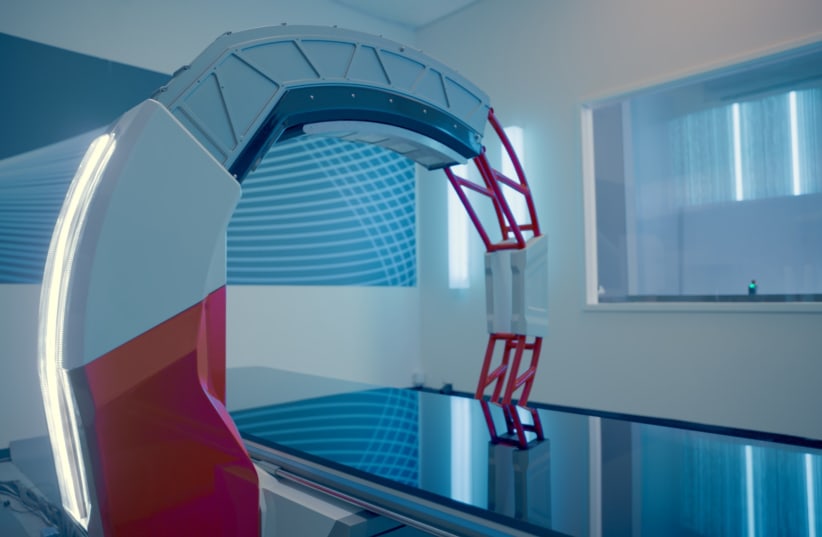As another wave of COVID-19 sweeps the world, this time propelled by the Omicron variant, the Israeli company Nanox, together with Shamir Medical Center in Tzifrin, has launched a pilot program of the Nanox.ARC advanced-imaging system to enable rapid indication of patients with worsening pneumonia as a result of COVID-19.
“This could be a game-changer for COVID patients who do not have access to more expensive machines,” said Shamir CEO Prof. Osnat Lev Zion Korach.
Shamir revealed that it had the system on Wednesday – the first hospital in the world to have in-house access to the Nanox.ARC.
Nanox describes its device as “the new digital X-ray technology.” Traditional X-ray procedures have not changed much for 126 years – until Nanox.
Nanox.ARC’s use of digital source energy X-rays allows the formation of a previously unattainable data snapshot, which includes 3-D digital imaging results (as opposed to 2-D results), allowing for a more detailed diagnosis that until now was only available through expensive CT scans.
Artificial intelligence can be used with the system to allow for remote diagnosis. And the low-level of radiation means there is no need for a big X-ray room with a complex set up to use Nanox.ARC.
“It’s high-resolution, cheaper and involves less radiation,” Lev Zion Korach said. “That’s what makes it a game-changer.”
X-ray imaging devices are critical for diagnosing lung conditions that occur in patients suffering from severe COVID-19. However, only around a third of the world’s population has access to proper imaging services or have to wait a considerable amount of time to use them – something that could mean life or death with the virus.
This is specifically the case in Third World and poorer areas, like Africa. Already, Nanox has signed an agreement with Eileeno Pharma Ltd. for the production of 1,000 devices in Africa, upon completion of development and obtaining the relevant certification.
Shamir is working with Nanox to complete clinical development and research of the system. The goal, according to the company, would be to have Nanox.ARC in use on the market in a brief time.
“We have a very strong radiology department and Nanox is collaborating with them to do more research – to compare the resolution and quality of the pictures and exams taken by Nanox.ARC to regular or other CT scans,” Lev Zion Korach explained.
The machine only landed in the hospital this week, she said and already “we see it is very promising – and we are very proud to be a part of it and helping in its development.”
Once approved, Shamir would likely not need the device since the hospital does have CT scans available for its patients. However, Lev Zion Korach said developing Nanox.ARC goes along with the hospital’s vision about how innovation can help patients wherever they are.
